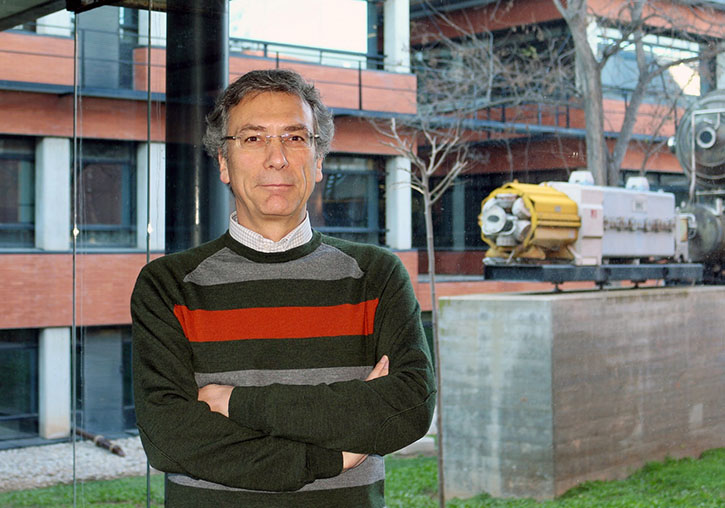Juan José Hernández Rey, researcher from the IFIC, appointed member of the Scientific Board of the CNRS
- Science Park
- February 24th, 2020

The researcher from the IFIC Juan José Hernández Rey has been appointed member of the Centre National de la Recherche Scientifique (CNRS), the most important research organism in France and the second worldwide in scientific production. The Scientific Board is the body that advises on the basic lines of research of the CNRS and its strategic planning.
The Scientific Board is composed of 30 members, 8 of which are foreign research staff of recognized prestige.
The CNRS is a public organism of research under the authority of the Ministry of Higher Education and Research of France. It is present in all fields of knowledge and is among the world's main organisations in both research and innovation. According to Nature Index, it is the second largest institution in the world by number of scientific publications. The CNRS has an annual budget of 3.4 billion euros, 33,000 researchers and more than 1,000 laboratories in France and abroad.
The Scientific Board of the CNRS is the body that advises on the basic lines of research of the main French scientific institution. It establishes the principles that ensure the quality of the research carried out by the CNRS and the programmes involving its institutes, as well as the CNRS Strategic Plan and its agreements with the French State. It also advises on the distribution of the institution's human and financial resources. It is also one of the bodies that compose the French National Committee for Scientific Research, the organisation that defines the scientific activity in France. These include the scientific councils of the CNRS institutes, which are groups of research units by area (equivalent to research institutes in Spain). For example, the IN2P3 (National Institute for Nuclear Physics and Particle Physics, counts with 39 laboratories with more than 1,000 researchers.
Juan José Hernández Rey (Madrid, 1957) is a Research Professor of the CSIC in the Institute of Corpuscular Physics (IFIC), a centre from CSIC and Universitat de València. He studied at the Autonomous University of Madrid (UAM) and started his research career at the Basic Investigation Unit of the former Nuclear Energy Board, where he did his doctoral thesis on experiments at the European Particle Physics Laboratory CERN (Switzerland), in which he later worked as a Fellow and Scientific Associate.
His field of research is particle and astroparticle experimental physics. He carried out experiments in diverse particle accelerators such as the Super Proton Synchrotron of CERN, the Tevatron of the Fermi National Accelerator Centre FNAL (United States) and the Large-Electron Positron (LEP) of CERN. His scientific interests comprise diverse fields such as the study of particles with charm, the study of the electroweak boson Z and the search of supersymmetric particles.
During the last decade, Hernández Rey has worked on the search of cosmic high energy neutrinos. He has been spokesperson of the ANTARES Collaboration, which built the first submarine telescope of neutrinos of the world, and he is member of the Collaboration KM3NeT, which aims to display a neutrino telescope of a size of several cubic kilometres in the sea floor of the Mediterranean Sea. He is member of the Particle Data Group, the international team that examines and compiles properties of elementary particles. He has been Director of the IFIC from 2015 to 2019.
More information:
















